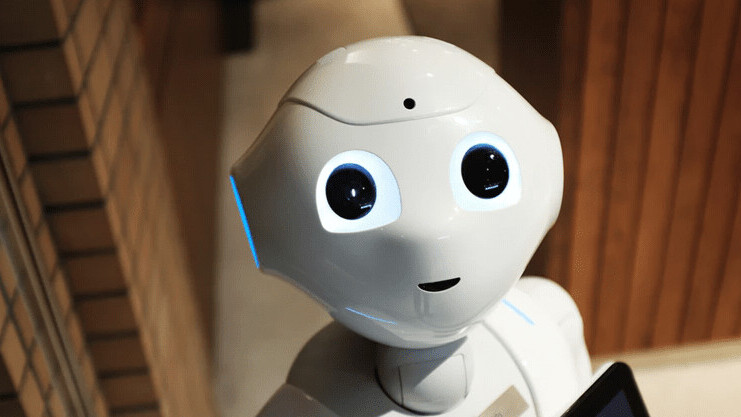
The bandwidth and effectiveness of global health organizations have been put to the test amidst the spread of the novel coronavirus (COVID-19). As a result, they are finding it increasingly difficult to keep up with their civil responsibility to keep the public properly informed. We, as a whole, rely on that information for guidance in a pressing time such as this.
But the challenges brought on in the last few months have raised the question as to whether or not organizations are properly equipped to handle a crisis of this magnitude.
Hopefully, they can scale their responsiveness with the help of conversational artificial intelligence, technologies that help computers process and respond to text and voice input.
Identifying the issue
The unforeseen rate of change around the coronavirus epidemic requires global health organizations to push information to a large population around the clock. These entities do this via the media, the web, email, SMS or even cellular broadcast. But this information becomes stale very quickly, and there’s no easy way for citizens to get timely, relevant and personalized updates to the crisis. Some of this burden falls on human agents via chat or voice, at physical call centers, to respond to the frontline of the issue answering to the public.
Given the nature of how COVID-19 spreads from person to person, it has become a challenge for employees to continue coming into the call centers since they would then be violating the social distancing guidelines, and as a result, run the risk of contracting and spreading the virus to those they come in contact with. Call centers have seen a major reduction in the number of employees readily available to assist and have throttled the responses to aid callers with COVID-19. This is even impacting emergency response call centers.
The physical limitation blends into the next issue, which concerns sheer volume. Since COVID-19 has become a global issue, it needs a solution on an equal scale to reach everyone. We have different needs in different parts of the country, and even the world. There have been far too many inquiries for call centers to handle, and when people seeking assistance reach health organizations—if they even get that far—the interactions with representatives are limited and less personalized to the needs of the individual.
Conversational AI is changing that.
Conversational AI’s innovative approach

Several government health organizations have turned to conversational AI as their solution for the outpouring of calls from concerned citizens, while making sure they are providing personalized engagements.
Using a conversational AI system to battle the response around COVID-19 can fill the holes left by absent human agents and allow these call centers to function at their full potential while adhering to social distancing guidelines. For example, a call center that usually holds 300 employees can now only safely accommodate 50. The AI-driven virtual assistant at the frontline can easily be implemented to keep these agencies afloat.
Entities around the world are coming together for a speedy solution. For example, Facebook has called out to developers around the world to partner as part of their launch of a global program, which connects government health organizations and UN health agencies with developers to leverage Facebook and Messenger to more effectively share timely and accurate information, and speed up their responses to concerned citizens. Conversational AI developers have joined their effort by helping organizations with automating responses to commonly asked questions, assisting their staff–all pro bono.
The main focus of a solution is to be interactive, conversational and fielding free form questions. Some efforts involve using email, SMS or social media posts to inform the public. In comparison, conversational AI provides an interactive medium that can give entities insight into how their constituents are dealing with the pandemic.
Interactions with conversational AI agents provide real-time insights to understand where there is a trend of unanswered questions and anxiety across different groups of people, such as test sites, turn-around time for results, common symptoms, location-sensitive recommendations and more. A showcase example is MyGov in India, the largest government to citizen digital infrastructure in the world. MyGov launched the MyGov Corona Hub with an interactive Facebook Messenger system: https://m.me/MyGovIndia. Promotion of this service is done via Facebook, Instagram, Facebook Messenger, Whatsapp, Twitter, and Telegram.
These systems can be used to create a “digital pulse” of a community, a region or an entire country. This is done first through interaction analysis, but then surveying the public with the current state of their experience, e.g., “are you showing any of the following symptoms,” “does anyone in your household have a fever above 99 degrees,” “If you’ve tried to get a test, have you been successful.”
They can also receive guidance on effectively sharing updates with their audiences and seamlessly handing off automated conversations to a live person when necessary. No matter the medium, it is key that we create a backchannel and re-engage the customer without restarting the journey at every point.
It is important, as those who provide a service, to bring our minds together and make a collective effort to identify global solutions in times of need. Currently with more than half a million confirmed cases worldwide, according to Worldometer, conversational AI is a powerful solution to get in front of the COVID-19 pandemic. It will work to address the concerns of millions of citizens around the world, all while personalizing the experience along the way, keeping them informed, at ease, and more importantly, safe.
Mahi de Silva is the co-founder and CEO of Amplify.ai, a developer of AI-driven messaging platforms. Amplify.ai has partnered with Facebook to offer government health organizations and UN health agencies a timely solution to disseminate accurate information to concerned citizens regarding COVID-19. For more information on Amplify.ai’s Messenger experience during COVID-19, visit http://amplify.ai/covid19/.
This story is republished from TechTalks, the blog that explores how technology is solving problems… and creating new ones. Like them on Facebook here and follow them on Twitter.
Get the TNW newsletter
Get the most important tech news in your inbox each week.





